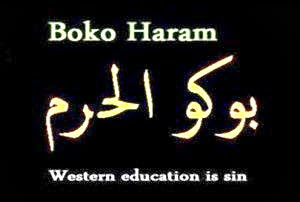Recent U.S. surveillance flights over northeastern Nigeria showed what appeared to be large groups of girls held together in remote locations, raising hopes among domestic and foreign officials that they are among the group that Boko Haram abducted from a boarding school in April, U.S. and Nigerian officials said.
The surveillance suggests that at least some of the 219 schoolgirls still held captive haven't been forced into
marriage or sex slavery, as had been feared, but instead are being used as bargaining chips for the release of
prisoners.
The U.S. aerial imagery matches what Nigerian officials say they hear from northern Nigerians who have
interacted with the Islamist insurgency: that some of Boko Haram's most famous set of captives are getting special treatment, compared with the hundreds of other girls the group is suspected to have kidnapped. Boko Haram appears to have seen the schoolgirls as of higher value, given the global attention paid to their plight, those officials said.
Nigerian President Goodluck Jonathan, who faces re- election in February, is under political pressure to secure the girls' release, with some people urging him to agree to a prisoner swap.
His government has ruled out a rescue operation, saying it is unwilling to risk the girls' lives, or a prisoner swap.
"We don't exchange innocent people for criminals. That is not in the cards," said Mr. Jonathan's spokesman, Reuben Abati, last week in an interview.
In early July, U.S. surveillance flights over northeastern Nigeria spotted a group of 60 to 70 girls held in an open
field, said two U.S. defense officials. Late last month, they spotted a set of roughly 40 girls in a different field.
When surveillance flights returned, both sets of girls had been moved. U.S. intelligence analysts say they don't have enough information to confirm whether the two groups of girls they saw are the same, they said.
They also can't say whether those groups included any of the girls the group has held since April. But U.S. and Nigerian officials said they believe they are indeed those schoolgirls.
"It's unusual to find a large group of young women like that in an open space," said one U.S. defense official.
"We're assuming they're not a rock band of hippies out there camping."
A wave of intermediaries acting on their own has tried to negotiate the girls' release, Mr. Abati said, adding that the president has neither authorized nor discouraged those efforts. Several of those intermediaries have said Boko Haram's leader, Abubakar Shekau, has ordered his fighters to treat the girls as valuable hostages—not sex slaves—one senior Nigerian security adviser said.
"He gave a directive that anybody found touching any of the girls should be killed immediately," the adviser said.
"If true, it is cheering."
It would also show that Boko Haram is trying to follow an al Qaeda tactic of swapping hostages for money and
political gain.
Boko Haram has used hostages in the past to demand the exchange of its prisoners held in both Nigeria and
Cameroon, which was one of the conditions for the release of a French family from captivity last year.
Now, the group appears to be testing the bargaining power of a group of girls who had been ordinary teenagers at a school—until their abduction on the night of April 14. That night, fighters with the Islamist insurgency—which is opposed to modern education—stormed a boarding school and drove 276 girls away hours before their final exams. Fifty-seven later escaped.
The captivity of the rest became a cause célèbre, prompting a Twitter campaign, #BringBackOurGirls, that was joined by notable figures including Michelle Obama and Hillary Clinton. It also spurred Boko Haram's latest effort to get its captives released from crowded Nigerian prisons—a long-standing grievance. Three months after seizing the girls, Boko Haram's leader, Mr. Shekau, appeared in a video demanding a prisoner exchange. "You are saying bring back our girls," thundered the bearded gunman, before firing his AK-47 into the air. "We are saying bring back our men!"
Dozens of demonstrators still gather in the capital each day to press for the girls' freedom. Their rallies have become a referendum on whether Nigerian women particularly poor, young, Muslim girls— are valued by a government of mostly wealthy, elderly, Christian men.
Mr. Abati said Mr. Jonathan has worked tirelessly to win the girls' freedom.
It isn't clear how many of the girls Boko Haram can deliver. A former Nigerian president, Olusegun Obasanjo, who has a history of contact with the group, has said some of the girls are likely dead or pregnant. Only about 130 of them—out of 219 missing— appeared in the sole video of the girls that Boko Haram has ever provided.
Meanwhile, the international effort to find the girls has waned: The U.S. military is now carrying out just one
surveillance flight a day, mostly by manned aircraft, totaling only 35 to 40 hours a week, said U.S. defense
officials, as drones have been shifted back toward other operations.
Some accounts suggest the burden of providing for scores of girls has become a point of dissension in Boko Haram's ranks.
In July, four girls and women aged 16 to 22 hid in their bedrooms as Boko Haram fighters broke into their home in the town of Damboa, they each said in an interview last week. They feared they would be kidnapped.
When their aunt, Fatima Abba, argued on their behalf. The roughly 20 Boko Haram insurgents decided not to
kidnap them—and instead began to complain about the scores of schoolgirls they already have.
"They are always crying. They behave like children," Ms. Abba quoted the Boko Haram fighters as saying of the
schoolgirls. "We don't want them around."
Source:
WSJ



















